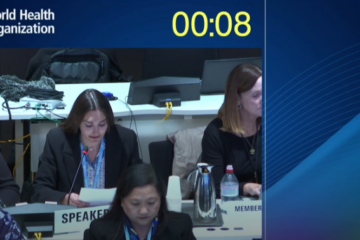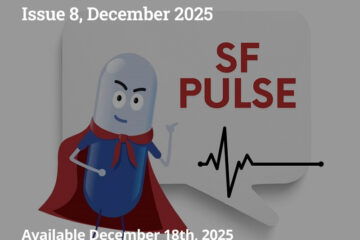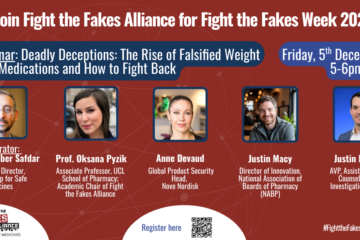If you walk into the British Museum in Bloomsbury, London and head to the gallery “Living and Dying”, you’ll find the installation “Cradle to Grave” – a glimmering showcase of life in contemporary Britain amongst exhibits from the Pacific Islands. Two lengths of textile rest under a glass sheet, one representing a man and one representing a woman, each containing over 14,000 pills. This is the estimated average that is prescribed to a resident of the UK in their lifetime.
Next to them are a series of objects and photographs to allow us to follow the lives of the man and the woman. Immunisations, condoms, an apple. Then, later in life: a mammogram, a hip replacement, an image of a grandparent and their grandson.
The piece allow us to reflect on past health, and also our future. It shows us our relationship with prescription drugs, and how reliant we are of them to lead an ordinary life.
In the UK, we rarely have to worry about the danger of fake medicines. Most of us get our drugs through stores that are accountable for what they sell, ensuring that our safety is their responsibility. We also tend not to buy drugs through poorly regulated online pharmacies due to the easily accessible flat-rate model that the NHS adopts. However, this does not mean that the problem is not there. In a survey done by the pharmaceutical company Sanofi, 50% of people had not heard of counterfeit drugs, and 63% of people think they are ill-informed of the dangers.
Many Britons believe that the danger of fake medicines is greater when travelling. This is true, as the luxury that we take for granted is not a given in developing countries, where there are not sufficient systems to monitor drug safety or accurate estimates of the magnitude of the problem.
Fight the Fakes aims to make the risk-free medication available to the whole world. As a future pharmacist, as a citizen of the UK and as a human being, campaigning for safe medicines is necessary and in need of urgent attention. I have never experienced a fake medicine, and I hope that one day no-one else will either.
Trevor Lowe, External Affairs Liaison for UCL Fight the Fakes, UCL School of Pharmacy


